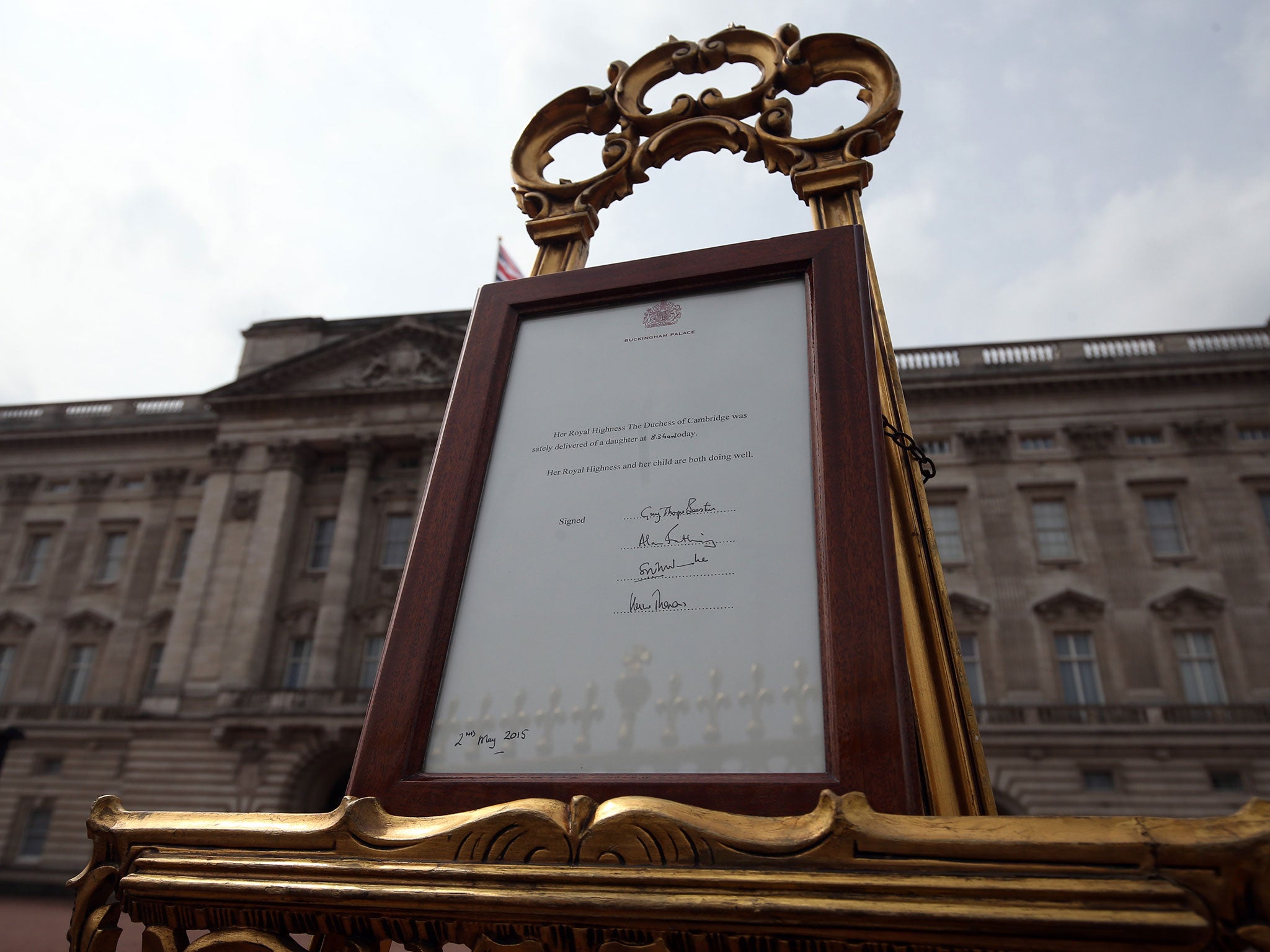Royal baby girl born: Duchess of Cambridge's second child will be a princess thanks to Queen
Queen Elizabeth issued a decree granting the title of prince or princess to all Prince William's children before the birth of Prince George

The Duke and Duchess of Cambridge’s daughter will be officially titled a princess thanks to an intervention by the Queen.
The couple have taken their youngest child after Catherine gave birth following a two-hour labour, but they are yet to announce a name.
Under a decree made almost 100 years ago, titles were limited by King George V to mean that only the eldest son of the eldest son of the Prince of Wales could be styled Royal Highness.
The Letters Patent meant that although her older brother is HRH Prince George of Cambridge, William and Kate's new baby would have been Lady Mountbatten-Windsor.
That rule was revoked by Queen Elizabeth ahead of the birth of Prince George in 2013, when she declared that “all the children of the eldest son of the Prince of Wales should have and enjoy the style, title and attribute of royal highness with the titular dignity of Prince or Princess prefixed to their Christian names or with such other titles of honour”.
It has been a quarter of century since a baby born to the British royals has taken the title of princess, following the birth of William's cousin, Princess Eugenie, in 1990.
In later life, when William becomes king, the new princess may be given the honorary style of Princess Royal, as Princess Anne does now.
It is customarily given by the monarch to his or her eldest daughter.
Day to day, the newest addition to the royal family will be known as the Princess of Cambridge and will be fourth in line to the throne.
Her name has not yet been announced, although bookmakers’ favourites include Charlotte and Alice.
According to the royal family’s official website: “For the most part, members of the Royal Family who are entitled to the style and dignity of HRH Prince or Princess do not need a surname, but if at any time any of them do need a surname (such as upon marriage), that surname is Mountbatten-Windsor.”
Prince William uses Wales as his professional surname in the armed forces, as does his brother Prince Harry.
Windsor was adopted as the royal family’s house and surname in 1917 by George V, who was part of the Saxe-Coburg-Gotha dynasty.
The Duke of Edinburgh wanted the royal family to use his name, Mountbatten, when the Queen came to the throne in 1952 and she incorporated it into the name for their direct descendants in 1960.
“I am nothing but a bloody amoeba,” Prince Philip once complained to a friend. “I am the only man in the country not allowed to give his name to his own children.”
The lengthy titles and styles of the royal family can be tricky to navigate but the monarchy’s website assures subjects that there are “no obligatory codes of behaviour” when meeting the Queen or her relatives.
For anyone wanting to stick to tradition, the correct formal address for the monarch is “your majesty” and then “ma’am”.
Other members of the royal family should be addressed as “your royal highness”, then “sir” for men and “ma’am” for women.
Additional reporting by PA
Subscribe to Independent Premium to bookmark this article
Want to bookmark your favourite articles and stories to read or reference later? Start your Independent Premium subscription today.

Join our commenting forum
Join thought-provoking conversations, follow other Independent readers and see their replies